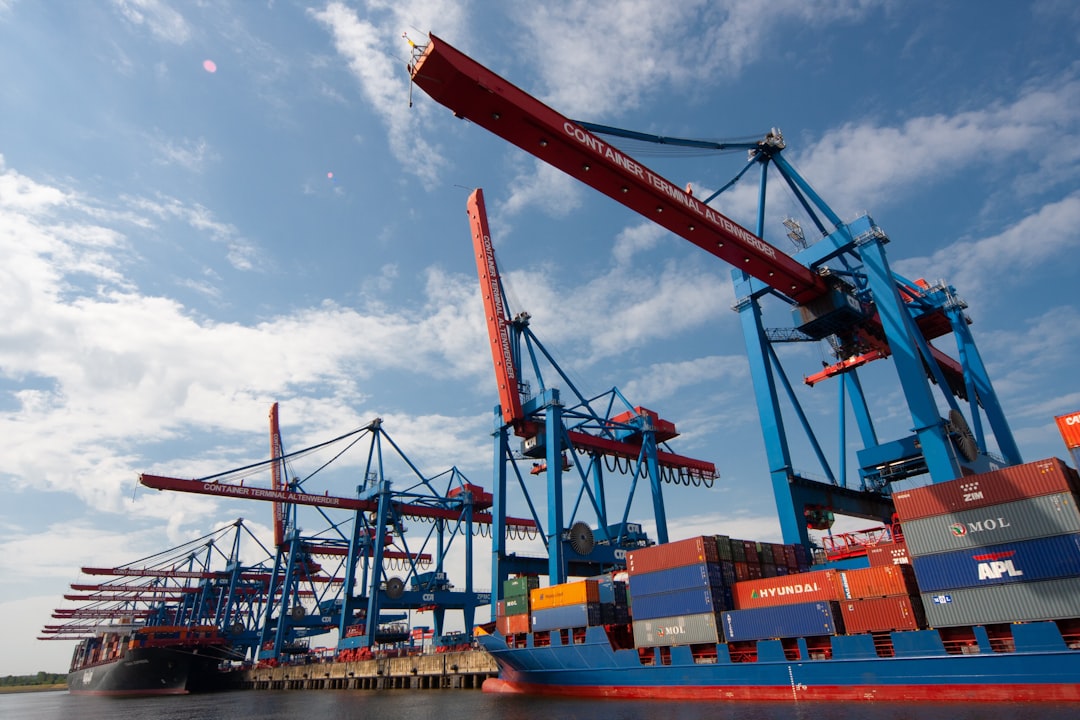Taiwan Urged to Fight Back Against 'Unjustified' U.S. Tariffs
Experts Advocate for Taiwan to Challenge Imposed Tariffs and Protect Trade Relations with the U.S.

Washington, April 4 – As a 32 percent U.S. tariff on Taiwanese goods looms, experts are urging Taiwan to actively push back against the measures, labeling them as unfair and unjustified.
Kurt Tong, a former U.S. diplomat and now Managing Partner at The Asia Group, stated that Taiwan should strongly communicate to the United States that the "reciprocal tariff" is unwarranted, recognizing the mutually beneficial nature of the Taiwan-U.S. trade relationship despite any imbalances.
"Both the Taiwan government and Taiwan industry should make a clear and forceful case to the U.S. that 'reciprocal tariffs' are unfair, excessive, and unjustified," said Tong.
These "reciprocal tariffs" were announced by U.S. President Donald Trump, impacting multiple countries including Taiwan, with the new import duties set to begin on April 9.
Tong explained that these tariffs are based on the assessment of both tariff and non-tariff barriers imposed by Taiwan on American exporters.
"But I think the calculation seems flawed and excessive," said Tong, who served as the principal deputy assistant secretary for economic and business affairs at the U.S. State Department from 2014-2016.
He added that the measure comes with an agenda "beyond reciprocity," including forcing investment into the U.S. and boosting government revenue.
Riley Walters, a senior fellow at the Hudson Institute specializing in international economics, echoed Tong's sentiments, asserting that the calculations underlying the U.S. tariffs are based on "bad math" and appear "quite unfair."
"What the White House has been doing is they will mention tariffs and they will mention non-tariff barriers, but the calculation that they've used is based purely on the trade deficit," Walters said.
He added that the Trump administration is "by proxy" implying that the trade deficit is a direct result of the tariffs and non-tariff barriers, "which isn't entirely true at all." Walters also pointed out the improbability of Taiwan imposing such high tariffs, noting that much of the U.S. trade deficit stems from U.S. demand for products like routers, servers, and other ICT goods.
Tong highlighted that while a trade imbalance exists due to Taiwan's trade surplus with the U.S., the trade relationship is still "mutually beneficial."
"U.S. companies benefit not just from their sales to Taiwan, but also from the imports that the U.S. buys from Taiwan -- so that case needs to be made clearly and forcefully," Tong said.
Tong suggested that it would be prudent for Taiwan's government to pursue negotiations with the Trump administration, but acknowledged that achieving a favorable outcome would be a "complex and difficult process."
Walters predicted that it's unlikely tariff reductions will occur within the coming week, but the possibility could arise "six months from now, a year from now."
Jeffrey Kuo (郭哲瑋), an economics lecturer at George Washington University, offered a contrasting view, suggesting that the "reciprocal tariffs" are a short-term policy, driven more by political symbolism related to Trump's campaign promise to bring manufacturing back to the U.S. than by economic factors.
Kuo noted the week-long window before the tariffs take effect, during which the Trump administration may engage in negotiations with other countries as a means of leverage, potentially leading to reduced tariffs.
Should the "reciprocal tariffs" be implemented as planned, Kuo warned that it could signify the beginning of a new era of protectionist trade policies, which would be detrimental to export-driven economies like Taiwan.
Other Versions
Taiwán debe luchar contra los aranceles injustificados de EE.UU.
Taïwan est invitée à lutter contre les droits de douane américains injustifiés
Taiwan Didesak untuk Melawan Tarif AS yang Tidak Dapat Dibenarkan
Taiwan esortata a reagire contro le tariffe statunitensi ingiustificate
台湾、米国の不当関税への反撃を要請
대만, '부당한' 미국 관세에 맞서 싸울 것을 촉구하다
Hinimok ang Taiwan na Lumaban sa 'Hindi Makatwirang' Taripa ng U.S.
Тайвань призвал дать отпор 'необоснованным' тарифам США
ไต้หวันเรียกร้องให้ตอบโต้มาตรการเก็บภาษีศุลกากรของสหรัฐฯ ที่ 'ไม่เป็นธรรม'
Đài Loan được kêu gọi phản công trước thuế quan của Mỹ 'vô lý'
